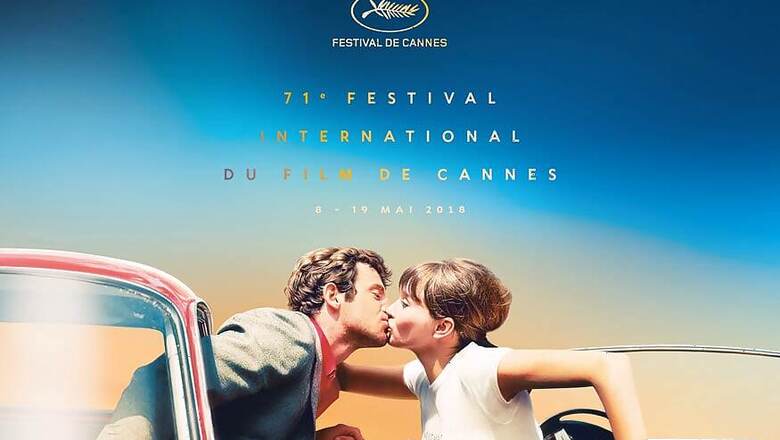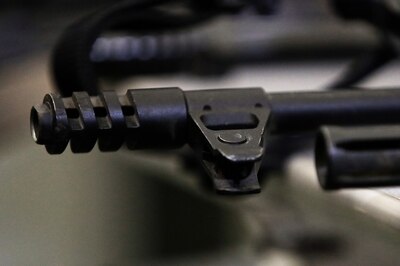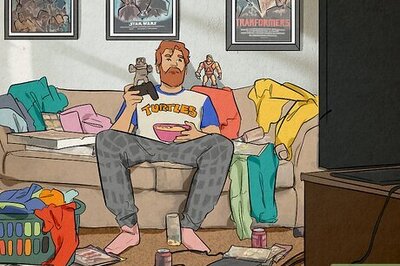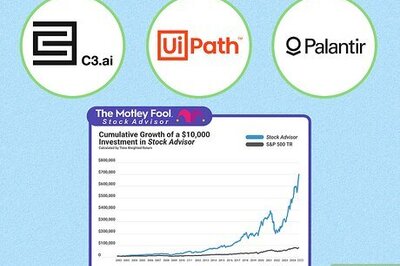
views
The Cannes Film Festival – which has been continuously on for 71 years, except for the brief interruption in 1968 because of a workers/students protest – seemed somewhat listless this year. Running from May 8 to 19, the Festival had introduced a couple of radical measures: no selfies on the Red Carpet and no advance Press screenings. But were these steps a reason for Cannes being not exactly Cannes this year? In fact, despite a mighty number of journalists (4000 or so) and thousands of industry professionals in attendance, the French Riviera town, once the playground for the rich and the famous (Hollywood star Grace Kelly met Prince Rainer there), looked a trifle forlorn.
Admittedly, many of my friends from Europe stopped coming to Cannes several years ago. For one, they found prices of hotels shooting sky high after Franc turned into Euro. Two, they found landing an interview with a star actor or director getting increasingly difficult. And the round-table interviews with six or seven journalists were such a pain, because the 20 minutes allotted to each group were too short for any meaningful question-answer session. And I have found, in the course of my long Cannes coverage, I was always saddled with at least one or two interviewers at my table who ended up asking the most inane questions: “Do you like Cannes?” a question shot at one who might have just landed there; “What is your favourite colour ?” Can anything get more silly?
Apart from the fact that some interesting people – journalists included – have stopped coming to Cannes, I found the city this time bereft of the huge promotional posters – an important part of the Festival landscape. Many movie companies would put up large banners on the Croisette (Cannes beach front where the main venue of the Festival, The Palace, is located) and after sunset these were illuminated so splendidly that they gave an ethereal look to the place.
And the parties! Time was in the 1990s, when Cannes would boast some of the most fabulous get-togethers, which took place on on the islands off Cannes and on the luxury yachts lining its coastline. With the gentle swaying of the boats on the shimmering Mediterranean waters, with Champagne and caviar flowing, and music wafting through the air, it was a sheer celebration of a Festival which had come to be tagged as the Queen of them all. Believe me, there were virtually dozens of parties every night, and each would overflow with revelers.
I still remember Vijay Mallya, once the King of Kingfisher and now a fallen hero, taking us, including Papa Roshan, Sonny Roshan, and Barbara Mori (Hrithik and Barbara acted together in Kites), to an island party. Some said Mallya owned the little island, but I could never verify this.
This year, there were very few parties, and the once that were there appeared all trimmed with fewer invitees and much less food and drink. But what to me seemed sadder was the absence of some star auteurs that Cannes and I have grown so accustomed to seeing, Mike Leigh's historic epic Peterloo, Matthew McConaughey-starrer The Beach Bum and Laszlo Nemes' Sunset were among the buzz titles that failed to make the Cannes' Competition cut.
Leigh's (who has competed five times at Cannes and won the Palme d' Or for his 1996 Secrets and Lies) Peterloo – about the early 19th century massacre of unarmed agitators by the British army, did not arrive at Cannes. A report in a trade magazine had this to say: “Harmony Korine’s The Beach Bum featuring Matthew McConaughey as stoner Moondog in the title role and with a star-heavy cast including Zac Efron, Martin Lawrence and Snoop Dogg, was thought to be a lock. As was Sunset, the sophomore effort from Hungarian director Laszlo Nemes, whose debut, Son of Saul, was in the Cannes Competition in 2015 and went on to win the Oscar for the Best Foreign- Language film. His new effort stars Juli Jakab as a woman growing up in Budapest just before the first World War."
There were other missing men at Cannes: Xavier Dolan (with his English-language debut, The Death and Life of John F. Donovan), Barry Jenkins (If Beale Street Could Talk), Claire Denis (High-Life), Yorgos Lanthimos (The Favourite), Felix Van Groeningen (Beautiful Boy), Luca Guadagnino (Suspiria) and Jacques Audiard (The Sister Brothers). It is said that all these movies failed to pop up on the Croisette.
Some critics quipped that this was a snub for the Festival General-Delegate, Thierry Fremaux. I am not so sure of this. What I am is that Cannes was dull alright this time around. And the official selections did not have many titles to brag about. Yes, I liked Shoplifters from Japan, Cold War from Poland, Dogman from Italy, Yomeddine from Egypt, Three Faces from Iran (director Jafar Panahi was not allowed to attend the Festival by his Government), Blackkklansman from America by Spike Lee, At War (from France) and Capharnaum from Lebanon, from the 21 entries in Competition. A mere eight in the basket. In previous years, I would take back at least 15. To me, this was the single biggest miss at Cannes. Not the parties, not the banners, not the selfie ban. Not even the Netflix decision to boycott the Festival, because the streaming giant could not agree with French producers, who insisted that Cannes titles must be screened in theaters before they can be shown on the Netflix platform.
But despite all this, I will still not agree with some of the critics that Cannes is sinking. No, no way!
(Author, Commentator and movie critic Gautaman Bhaskaran covered the Cannes Film Festival for the 29th year, and may be e-mailed at [email protected] )

















Comments
0 comment